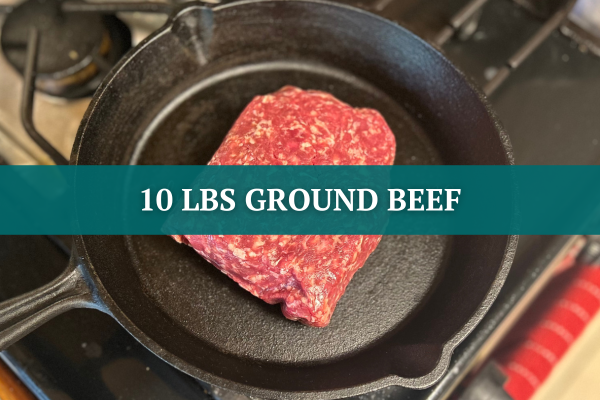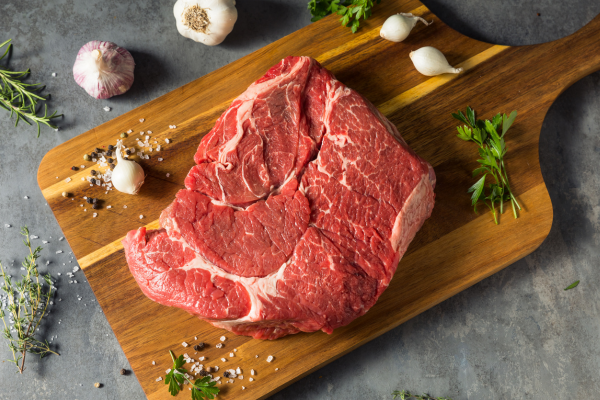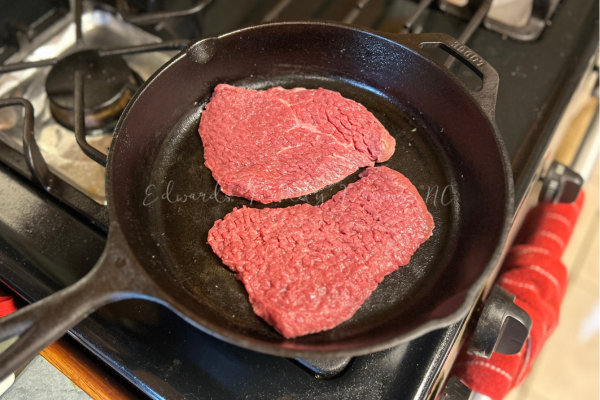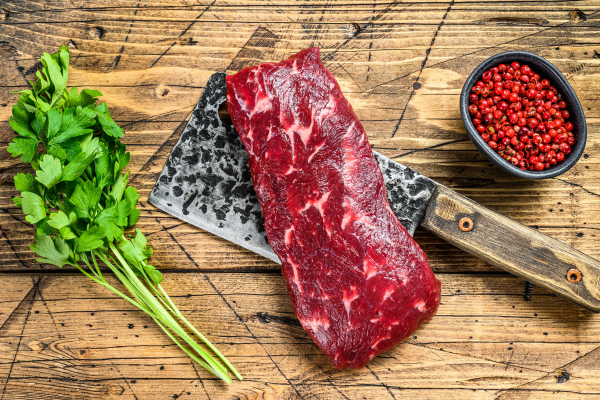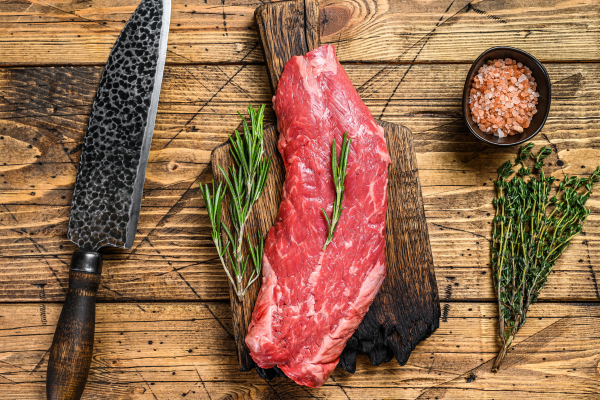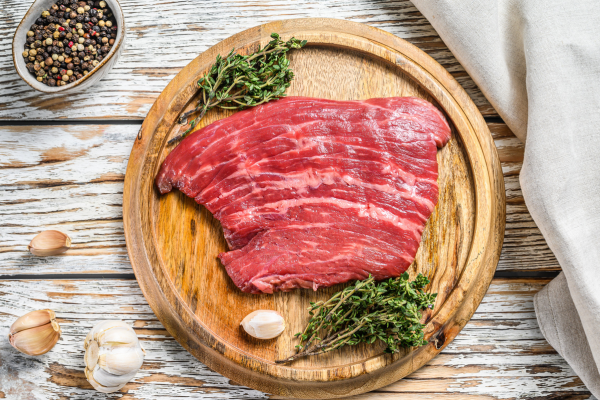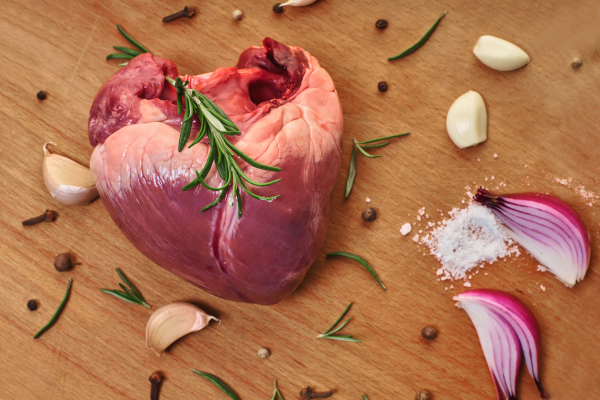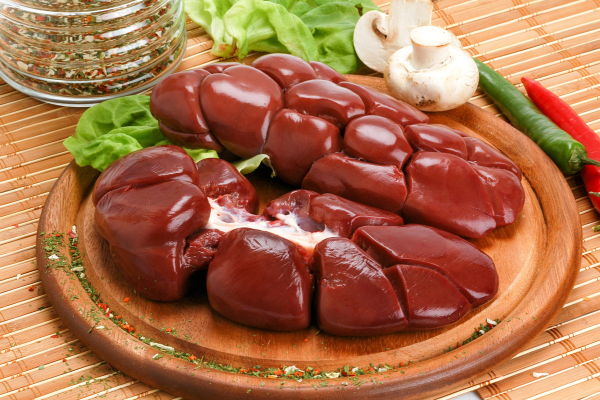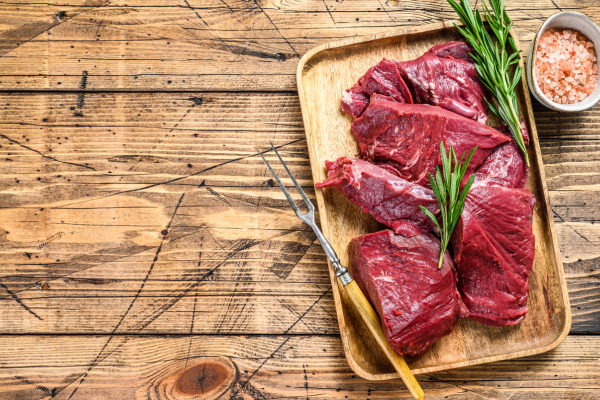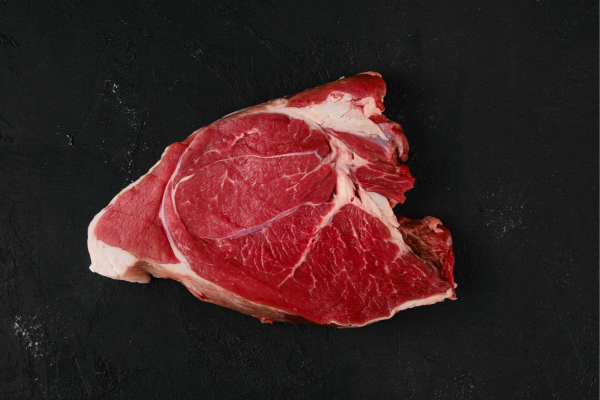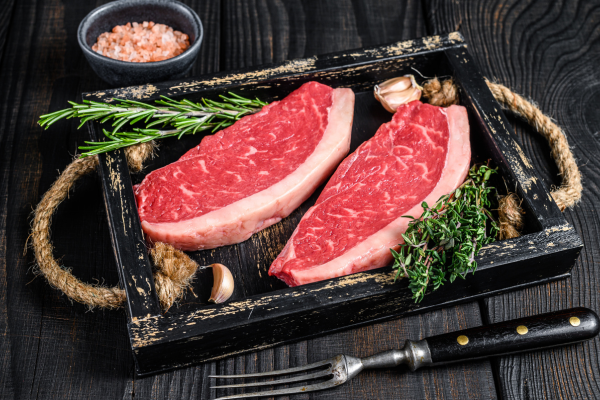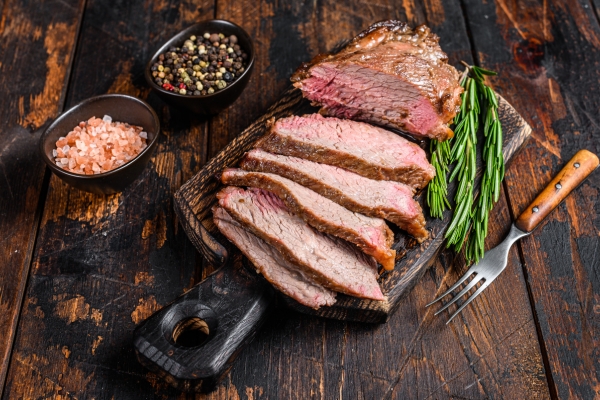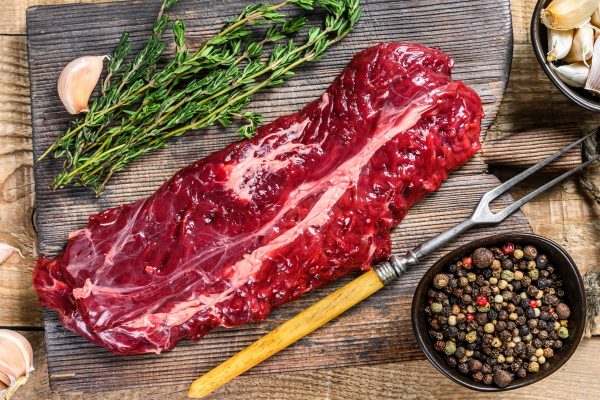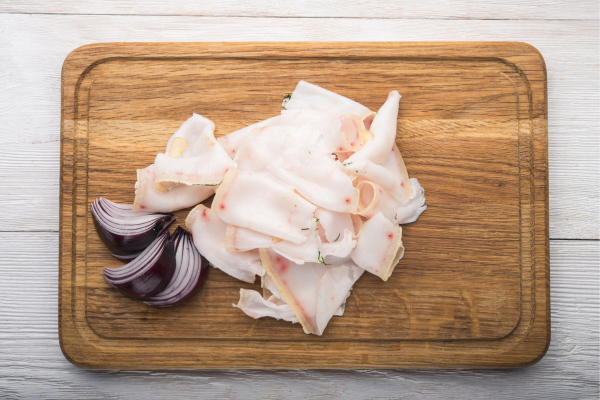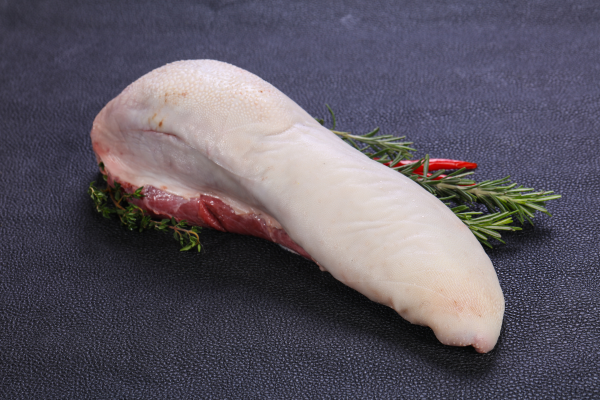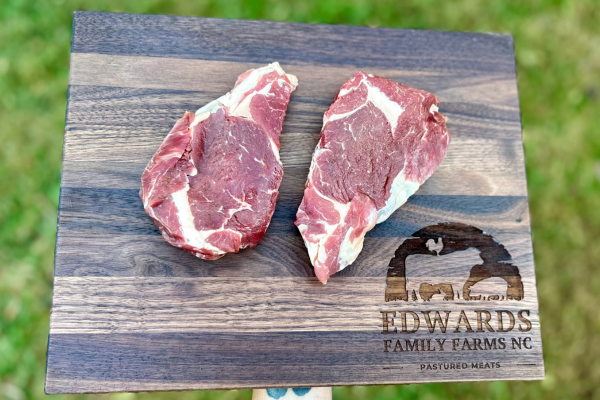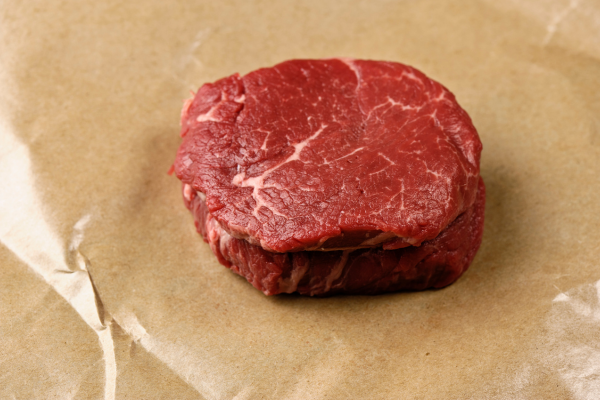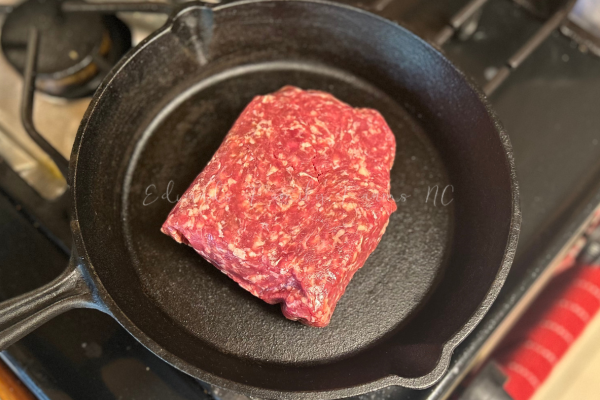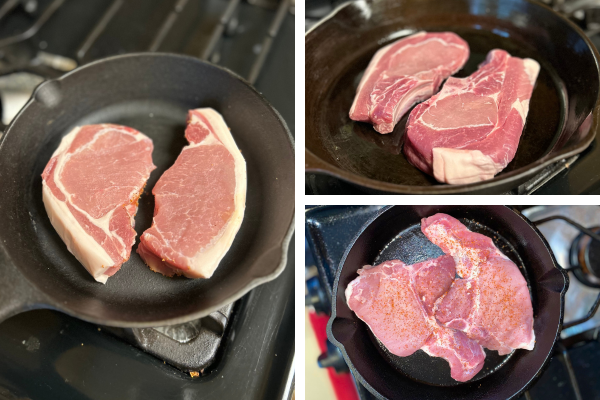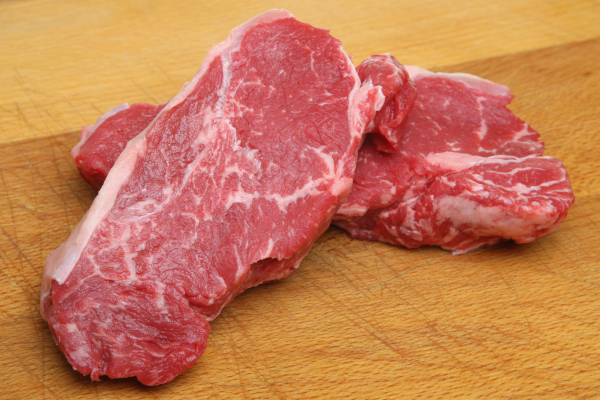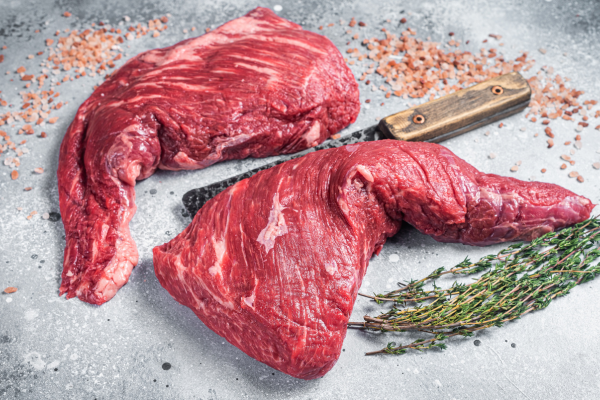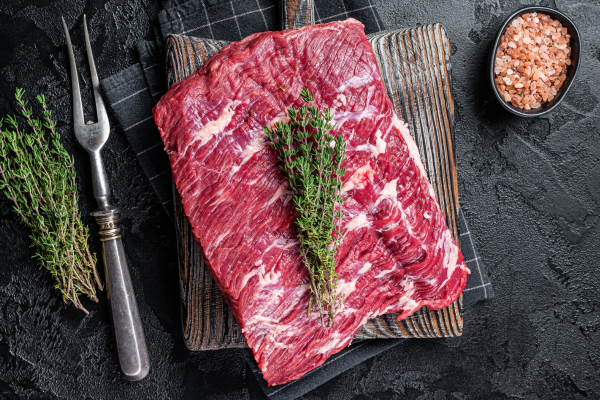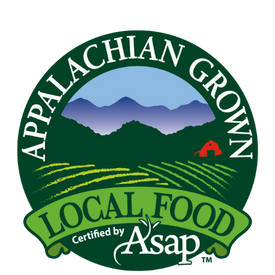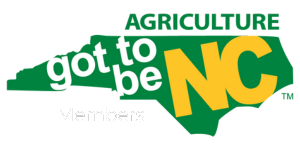Rotationally Grazed
What is Rotational Grazing?
This is when only one portion of our pasture is grazed at a time while the remainder of the pasture “rests.”
To accomplish this, our pastures are subdivided into smaller areas (paddocks) and our livestock are moved from one paddock to another.
Resting our grazed paddocks allows forage plants to recover and deepen their root systems.
Our rotational grazing practices also help to prevent erosion and agriculture runoff.
Why does this matter?
Left alone on a patch of land, animals like cattle and hogs can quickly destroy all signs of life, compacting the soil as they go.
However, if the animals are managed with rotational grazing, the soil sees big returns.
Grazing encourages plants to send out more and deeper roots.
Those roots are continually sloughed off to decompose in the ground, boosting soil biomass and fertility and sequestering carbon from the atmosphere.

- All
- On Sale
- pork share
- eggs
- boneless
- bone in
- bulk ordering
- whole share
- tenderloin
- sausage
- ham
- roast
- ribs
- uncured
- bacon
- shoulder
- fat
- lard
- liver
- feet
- misc cuts
- bones
- organ meat
- wings
- loin
- belly
- fryer
- breast
- chops
- leg
- whole
- chicken
- drumsticks
- links
- ground
- bulk
- dark meat
- bundle
- bratwurst
- events
- workshops
- processing
- bone broth
- offal
- skin on
- skinless
- classes
- subscription
- organ
- farm tour
- butchery
- meat birds
- tshirt
- breakfast links
- steaks
- boston butt
- sticker
- steak
- sliced
- sampler
- bag
- chuck
- skirt
- brisket
- strips
- ribeye
- stew
- marrow
- filet
- tallow
- salted
- tools
10 lbs Bulk Ground Beef
10 lbs, each in 1lb packages (10 packs)
Beef Chuck Roast
about 3.5 lbs
Beef Cube Steak
4 steaks / pack
Beef Denver Steaks
2 steaks / pack
Beef Flank Steak, Whole
each steak weighs approx. 1 lb.
Beef Flat Iron Steak
2 steaks / pack
Beef Heart
Whole, weighs about 2 lbs
Beef Kidney
1 kidney / pack
Beef Liver, Sliced
Each liver weighs approx. 4 lbs.
Beef London Broil (Top Round Roast)
1 roast / pack
Beef Picanha Steaks
2 steaks / pack
Beef Sirloin Tip Roast
Each roast weighs about 3.5 lbs
Beef Skirt Steak
Whole & weighs about 3/4 lb
Beef Tallow Fat (Not Rendered)
each package weighs about 2.5 lb
Beef Tongue
Whole, weighs about 1 lb
Boneless Ribeye, Beef
2 steaks / pack
Boneless/Skinless Chicken Breasts
4 / pack
Filet Mignon, Beef
1 filet / pack
Grill Master Chicken Bundle
Master the grill with this bundle
Ground Beef, 80/20 - 1 lb.
Single or bulk options
Pork Chops - Choose your style
Boneless, Bone-In or T-Bone
Pork Tenderloin
weighs approx. 3/4 lb. each
Top Sirloin Steaks, Beef
2 boneless steaks / pack
Tri-Tip Beef Roast
1 whole roast weighing approx. 1.5 lbs
Weekly Meal Prep - Chicken Only Bundle
Perfect portions for your weekly prep
Whole Beef Brisket
weighs approx. 5 lbs

